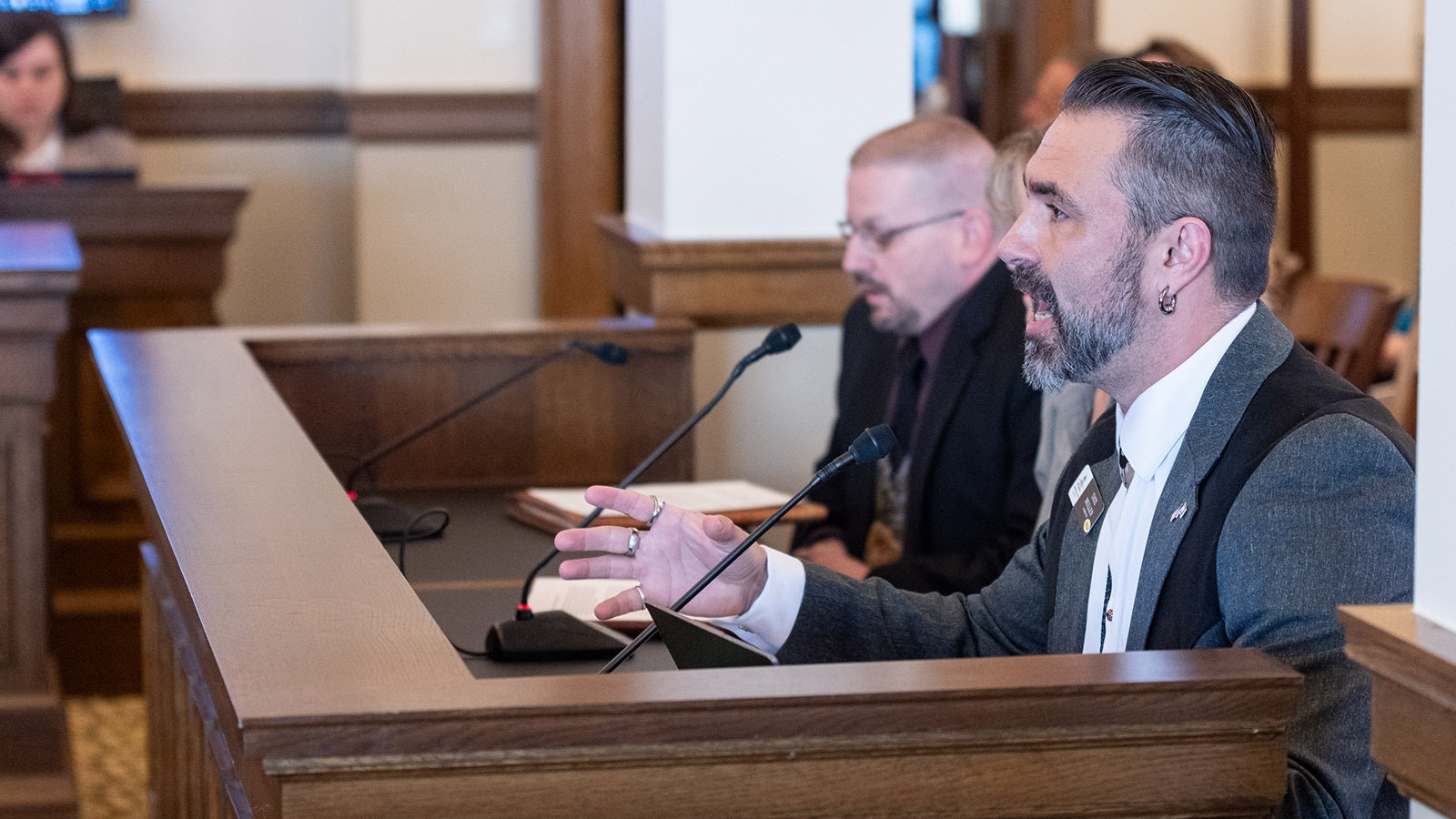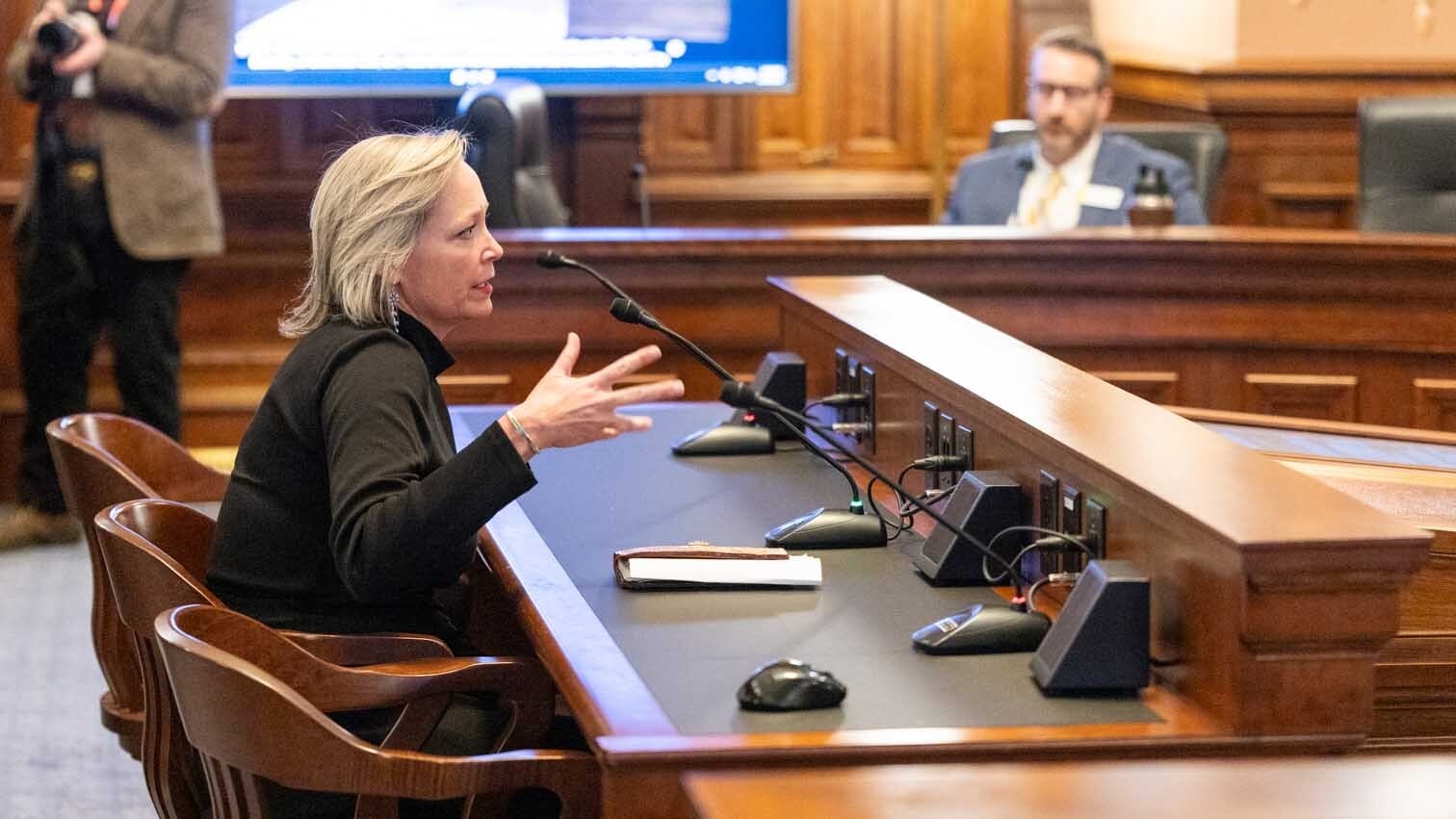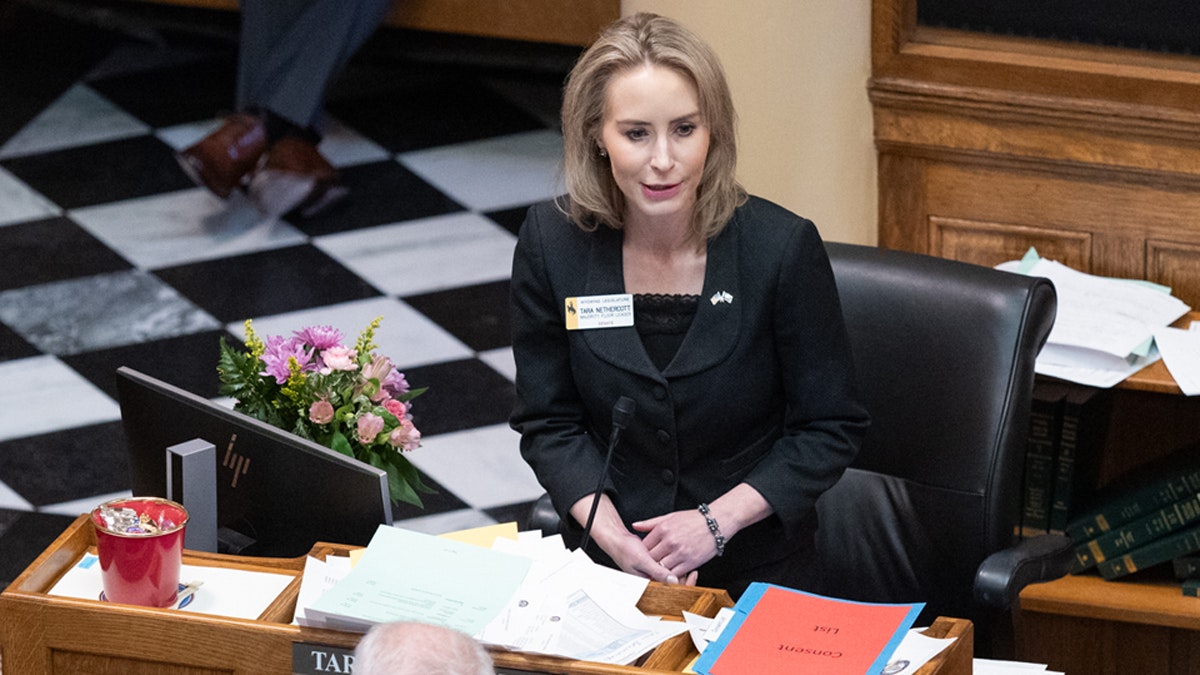A bill that would give many Wyoming parents money for their children to have private education received pushback from a contingency of homeschool parents at the Senate Education Committee on Wednesday.
The parents’ greatest concern about House Bill 166 is that it would set in motion a slippery slope of government regulation over homeschool education in Wyoming.
Cheyenne homeschool parent Lindsey Sears argued that public money always equates to public education.
“There are many who would seek to put further stipulations and oversight on these funds,” Sears said. “I for one don’t wish to enter into such an agreement with the government.”
Homeschool parent Erin Waszkiewicz said although she would personally benefit from the bill, she still opposes it because it could lead to future legislation that would “harm the fabric of homeschool education.”
“History tells us the more popular something becomes the more regulated it gets,” she said.
What It Does
HB 166 would not place any Wyoming homeschoolers under the state’s purview if parents elected to not participate in the education savings account (ESA) program.
The way the proposed program works is that families with an income level of up to 400% of the federal poverty level can qualify for $1,000 to $5,000 to put toward the cost of their private education, depending on their specific income level.
Tutoring services and even ACT test preparation programs could qualify for the ESA money.
Money would also be made available to reimburse public schools that offer limited services and classes to students who are otherwise primarily homeschooled.
Homeschool parents can choose to participate in the program, but if they do so, must have their children participate in annual state testing and follow certain guidelines for what subjects and curriculum are taught. Homeschool educators in Wyoming already must follow the same guidelines to operate.
“We need some kind of means testing so they don’t fall behind and in a year or two are back in the public school system,” said Rep. Ken Clouston, R-Gillette, the bill’s sponsor. “We need to make sure the funds are being used in a valuable way.”
The Wyoming superintendent of public instruction would be in charge of maintaining a list of ESA providers and oversee the ESA program, which Clouston said would be purposely designed to start small.
Superintendent of Public Instruction Megan Degenfelder has said she supports the bill.
“We didn’t want a family who really needs the funds to not have any available, compared to a family who can easily afford private education,” Clouston told Cowboy State Daily.
Opening The Door?
Anonymous online reporting or anonymous “telereporting” would be allowed in cases where an ESA provider is suspected of failing to meet state guidelines.
Although these might seem like relatively benign requirements on their surface, Cheyenne homeschool parent Doug Pietersma warned that they could open the door for a broader range of requirements down the road and lead to increased costs for private tuition.
“The fact that the government is now requiring this to the point where if a person is not doing this, the funds could now be removed,” he said. “If the precedent is set to do that with an ESA-funded at home school family, what would limit that from being expanded and then perhaps applied to other families?”
Brenna Lowry, a representative of Homeschool Wyoming and 25-year homeschool parent, urged the committee members from allowing any homeschool educators in Wyoming from participating in the ESA program, a point that Sens. Chris Rothfuss, D-Laramie, and Bo Biteman, R-Ranchester, specifically questioned her on.
Lowry argued that too many lines would become blurred between homeschool and public education in Wyoming as a result of the legislation.
“They (homeschool parents) would benefit from this; however, I think the freedoms sacrificed down the road would not be worth money taking from the government,” she said.
That’s a scenario she and others said has played out in New Hampshire as a result of a similar bill passed there.
A few parents instead advocated for legislation more similar to what has passed in Iowa, which specifically excludes homeschooling.
Clouston said concerns like these are unwarranted.
“I just think there’s a lot of confusion and misrepresentation out there,” he said. “They don’t have to participate if they don’t want to.”
He said there are 24 other states that implement some form of ESA, most with no income requirements.
A total of $20 million from the general fund per biennium would be apportioned to support the program, which would include pre-kindergarten education for children age 4 and older. Seventy percent of the money would go to K-12 ESAs, while 30% pre-kindergarten, a distribution that some also criticized Wednesday.
Tate Mullen, government relations director for the Wyoming Education Association, said there is no structure in place within the bill to ensure that pre-K education providers are offering anything more than day care services.
“The first component of a high-quality education is regulation,” he said.
Any ESA provider would have to be certified with the superintendent.
The program would not include charter schools, as they are considered public schools in Wyoming.
Do They Need It?
Opponents of school choice programs like the kind HB 166 offers have argued that public dollars shouldn’t go toward helping students seek a private education.
Others like Mullen offered a critique based on national statistics that have shown that most parents who would take advantage of the ESA program are already using private forms of education.
“What it means is subsidies for wealthy families already attending these schools, it does not target low-income families,” Mullen said.
Mullen said the WEA will not support HB 166 under any scenario.
Clouston said he sees his bill as offering an opportunity for families that might not otherwise be able to afford it to pursue private education.
“We’re really trying to fund families that need some assistance,” Clouston said.
Under the legislation, a family of four with a total income of $120,000 could qualify for the $1,000 ESA benefit offered under the bill.
The Legislature considered another ESA bill earlier this session that would have established lower income caps. That was defeated by one vote on introduction.
Clouston, who voted against an ESA bill last year that had no income stipulations, said he sees his bill as bridging a middle ground. Although he supports the state’s public schools, Clouston said Wyoming government should also play a role in helping those who pursue private education.
“I do really believe that we have a responsibility to all students in Wyoming and if we can provide some funds to help them get a better education, then that’s a responsibility that we should live up to,” he said.
HB 166 passed the House on third reading 44-18 on Monday.
The Education Committee will continue discussing the bill at its next meeting Friday.
Leo Wolfson can be reached at leo@cowboystatedaily.com.





